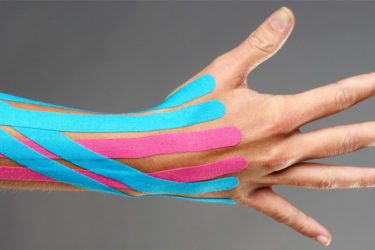Results for: non-specific effects

Olympic Pseudoscience
Pseudoscience is rife within the sporting world, and reaches its apogee with the Olympic Games.
Hypnotherapy For Pain and Other Conditions
Hypnotherapy is the use of hypnosis as a medical intervention, usually for the treatment of pain and other subjective symptoms. It remains controversial, primarily because the evidence for its efficacy is not yet compelling, but also because it is poorly understood. This situation is not helped by the fact that it is often characterized as an “alternative” therapy, a label that can...
Acupuncture for Migraine
A recent study looking at acupuncture for the prevention of migraine attacks demonstrates all of the problems with acupuncture and acupuncture research that we have touched on over the years at SBM. Migraine is one indication for which there seems to be some support among mainstream practitioners. In fact the American Headache Society recently recommended acupuncture for migraines. Yet, the evidence is...
Social Anxiety – There’s An App for That?
When I first heard about studies using smartphones to treat anxiety with cognitive therapy I was intrigued, to say the least. However, I had a misconception about what that actually meant. My assumption was that the smartphone app would be automating some basic cognitive therapy, a virtual therapist that could give some reflective feedback and also give basic cognitive tools to deal...
Chiropractic Neurology
Chiropractic is a diverse collection of beliefs and practices occurring under a broad regulatory label. The differences among various chiropractics are so stark that it is difficult to make general statements about chiropractic practice. At one end of the spectrum, however, are so-called “straight” chiropractors who adhere to the original philosophy of D.D. Palmer – that a vital force they call innate...
Dummy Medicine, Dummy Doctors, and a Dummy Degree, Part 2.2: Harvard Medical School and the Curious Case of Ted Kaptchuk, OMD (cont. again)
“Strong Medicine”: Ted Kaptchuk and the Powerful Placebo At the beginning of the first edition of The Web that has no Weaver, published in 1983, author Ted Kaptchuk portended his eventual academic interest in the placebo: A story is told in China about a peasant who had worked as a maintenance man in a newly established Western missionary hospital. When he retired...
Legislative Alchemy III: Acupuncture
Acupuncture is typically depicted as sticking needles at various points on the body prescribed (inconsistently, it turns out) by charts indicating purported “meridians” through which “qi” flows in the human, or animal, body. However, from one of the many SBM posts on acupuncture, this one by Dr. Novella , we in fact know that: the consensus of the best clinical studies on...
Blatant pro-alternative medicine propaganda in The Atlantic
Some of my fellow Science-Based Medicine (SBM) bloggers and I have been wondering lately what’s up with The Atlantic. It used to be one of my favorite magazines, so much so that I subscribed to it for roughly 25 years (and before that I used to read my mother’s copy). In general I enjoyed its mix of politics, culture, science, and other...
Placebos as Medicine: The Ethics of Homeopathy
Is it ever ethical to provide a placebo treatment? What about when that placebo is homeopathy? Last month I blogged about the frequency of placebo prescribing by physicians. I admitted my personal discomfort, stating I’d refuse to dispense any prescription that would require me to deceive the patient. The discussion continued in the comments, where opinions seemed to range from (I’m paraphrasing) ...
Pragmatic Studies – More Bait and Switch
The course of research into so-called alternative medicine (CAM) over the last 20 years has largely followed the same pattern. There was little research into many of the popular CAM modalities, but proponents supported them anyway. We don’t need science, they argued, because we have anecdotes, history, and intuition. When media attention, which drove public attention, was increasingly paid to CAM then...

